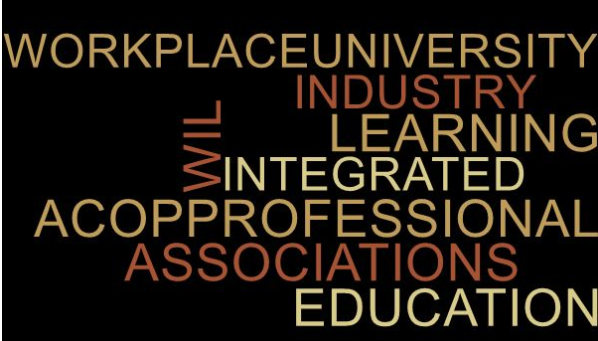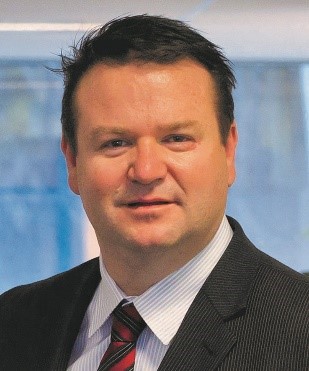Despite the ongoing disruptions of the COVID-19 pandemic, we need to ensure graduates entering the Professions in the future are work ready. While many innovative ways of providing WIL have been developed, more efforts are required to achieve best practices in student placements.

At the same time, the National Priorities and Industry Linkage Fund (NPILF), introduced under the Australian Government Job-Ready Graduates package, requires universities to increase both the quantity and quality of work-integrated learning opportunities to ensure work ready graduates. How will universities achieve that? How will industry be able to provide essential workplace experiences in a COVID world? What role could professional associations play in fostering university – industry collaboration?
The many participants in our “Work-Integrated Learning (WIL) during the Pandemic – The Good, The Bad, The Innovative” Roundtable on 9th November 2021 felt it was a timely and very useful exploration of this important component of educating professionals of the future. While several innovative ways of providing WIL have been developed, more efforts are required to achieve best practices in student placements.
Hosted by ACoP Board Director and Education, Accreditation, Micro-Credentials and Employability portfolio co-chair Simon Hann, the Round Table explored a number of topics that have arisen in nearly two years of higher education teaching, learning, assessment and placements during the COVID-19 pandemic restrictions. In May of last year, we had facilitated a Joint Statement by the entire Australian higher education sector of agreed principles for adapting to the pandemic.
The Roundtable experts were:
Prof Peter Dawkins – Mitchell Institute for Education and Health Policy, Victoria University
Professional Profile
Peter is leading the Review of University-Industry Collaboration in Teaching & Learning with former RMIT V-C Professor Martin Bean.

Harold Lomas BA – A/g Assistant Secretary, Dept. of Education, Skills and Employability
Professional Profile

Paolo Damante MDIT BA – Senior Policy Officer, Australian Industry Group (AIG)
Professional Profile

Karena Maguire MSc. BBS FCMA – Head of Stakeholder Engagement and Communications, Quality and Qualifications Ireland (QQI)
Professional Profile

Mairéad Boland LLB LLM – Quality Assurance Manager, Quality and Qualifications Ireland (QQI)
Professional Profile

Simon Hann BCom LLB – Co-Chair, ACoP Education, Accreditation, Micro-Credentials and Employability portfolio
Professional Profile

Topics discussed included:
- How can collaboration between industry and universities be increased to make the 2015 ‘National Strategy on Work Integrated Learning in University Education‘ a reality?
- What is the gold standard for University – Industry Collaboration?
- What challenges will need to be overcome?
- What are some of the innovative ways universities and industry have delivered WIL (particularly placements) in a COVID environment?
- How could professional associations support work integrated learning and university – industry collaboration?
The Round Table participants examined the challenges impacting University–Industry Collaboration, what ‘Good’ University–Industry Collaboration looks like and how it interacts with the Australian Government’s Review of University-Industry Collaboration in Teaching & Learning. There was universal consensus about the need to ensure stronger university-industry collaboration, particularly as young people are struggling with the transition to skilled employment.
AIG senior policy officer Paolo Damante outlined industry expectations and session participants expressed their firm belief that higher education needs to meet lifelong learning needs by engaging more meaningfully with industry as skills shortages continues to affect our employment landscape. The participants also spoke of greater collaboration between Higher Education and VET as a necessity if the industry is to succeed and inducements are also considered vital to increase WIL opportunities.
DESE’s acting Assistant Secretary Harold Lomas provided the background to the Australian Government’s National Priorities and Industry Linkage Fund (NPILF) <link> and outlined its purpose and progress to date as well as the themes identified from the pilot plans universities have submitted and the role of NPILF going forward.
Karena Maguire and Mairead Boland from Quality and Qualifications Ireland (QQI) shared Ireland’s response to the impact of COVID on providing work placements. Our Round Table participants then explored some of the innovative ways universities and industry have delivered WIL placements in a COVID environment and the lessons Australia could learn from Ireland’s experience.
The Round Table concluded with the identification of a number of useful models, resources and possible solutions to address the issues raised and opportunities for professional associations to leverage in order to enhance collaborations between universities and industry. The Australian Council of Professions will further this further with its Member Organisations in 2022.
We invite professional organisations who are not members of ACoP to join our alliance as we work collectively to uphold the integrity of work-integrated learning and the importance of collaboration between higher education and industry. For more details, ring 1300 664 587 or contact CEO@Professions.org.au.